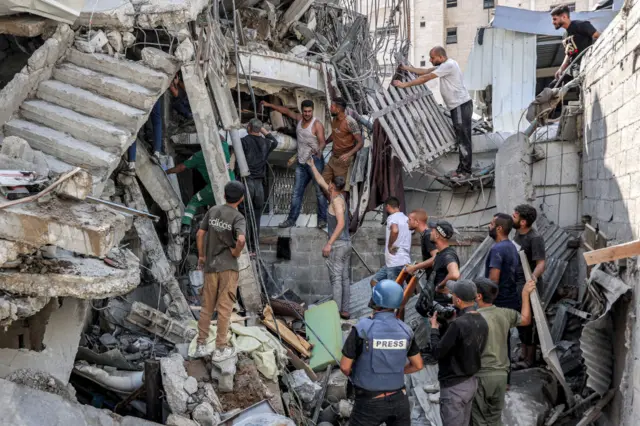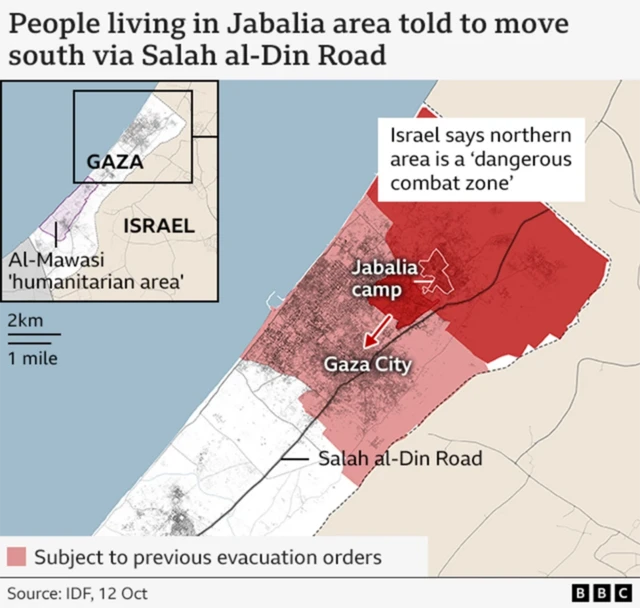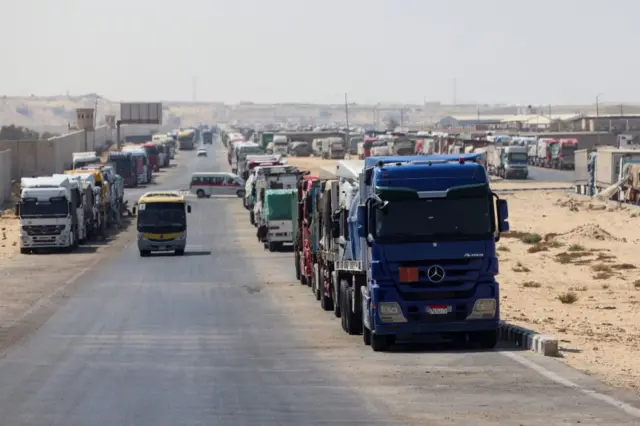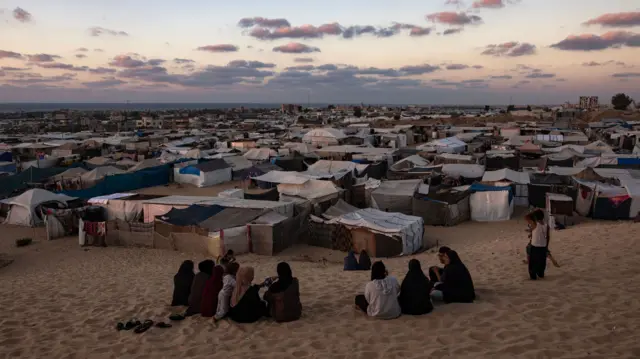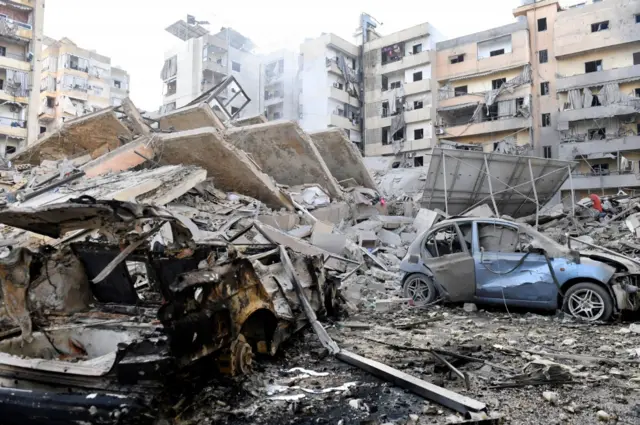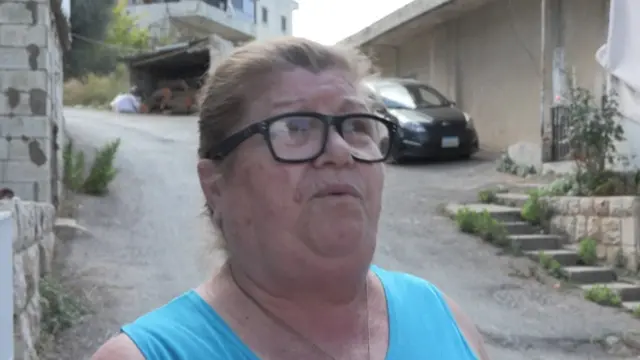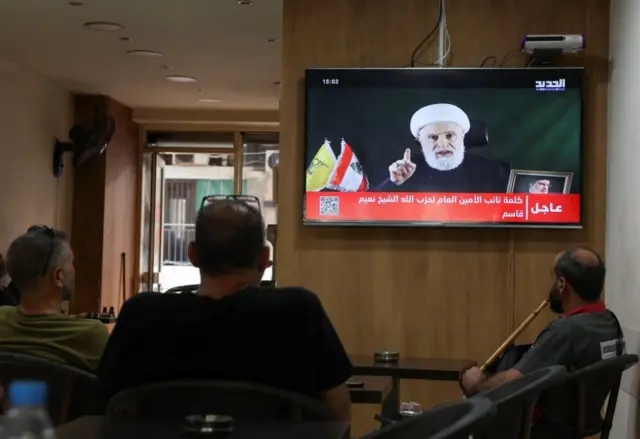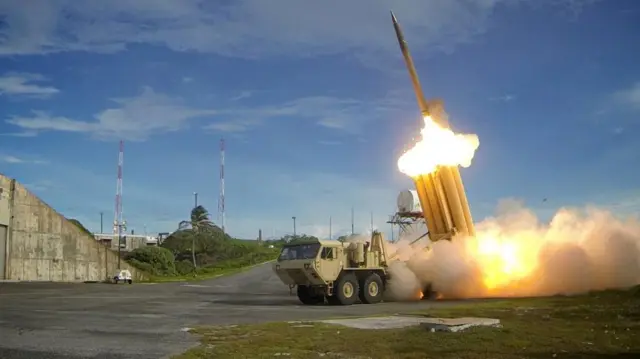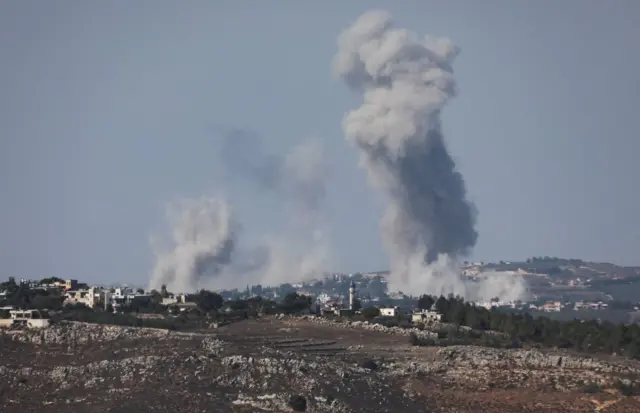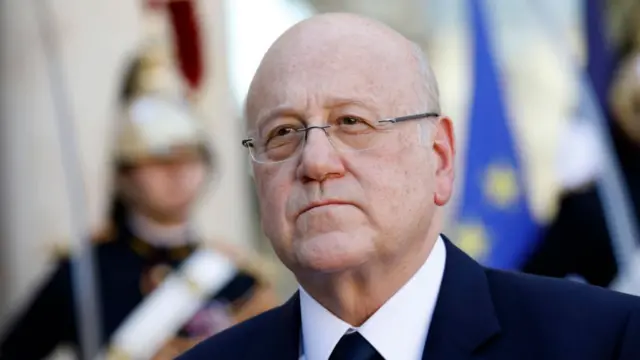US says it is concerned about Beirut bombingspublished at 19:25 BST 15 October 2024
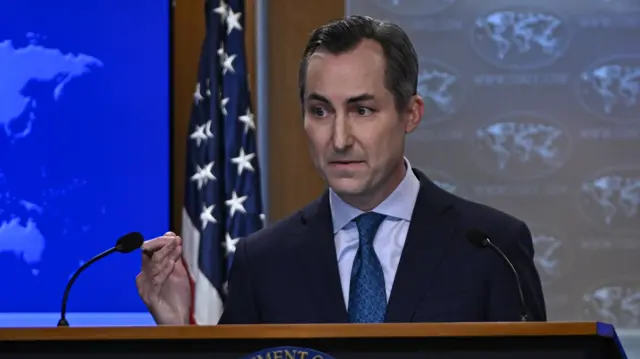 Image source, Getty Images
Image source, Getty ImagesUS State Department spokesperson Matthew Miller has also touched on Israel's bombing of Lebanon.
He says the US has raised concerns with the Israeli government over the nature of the campaign in Beirut in recent weeks, largely due to the civilian toll.
Miller adds that there are strikes the US would consider appropriate for Israel to carry out and that Washington would continue to watch the situation very carefully.
